North Carolina Voters: Ramp Up Clemencies To Reduce Prison Population
Clemency powers are the most direct route to addressing the profound harm of needless incarceration and ending excessive, unjust sentences.

Nearly 29,000 people are incarcerated in North Carolina prisons. Many of these individuals are serving lengthy sentences that would not be imposed today, or were given to them for acts they committed years or even decades earlier as adolescents. Some have been in prison for decades for a crime they didn’t commit. A growing percentage of the prison population is older and infirm, costly to incarcerate but no longer a threat to public safety.
The state’s history of draconian sentencing and wrongful convictions has primarily harmed people of color. North Carolina’s per capita rate of incarceration is over four times higher for Black residents than for whites, and studies have found that Black people are also likely to receive more severe sentences compared to similarly-situated white individuals.
In June 2020, in response to the Black Lives Matter protests, North Carolina Governor Roy Cooper announced a task force to “help eliminate systemic racism in our criminal justice system.” But Cooper’s failure to use his most immediate corrective power—clemency—even to the degree of his predecessors has drawn criticism from legal scholars, advocates, and practitioners.
Clemency—the sweeping executive power that allows the governor to commute sentences or pardon convictions—is a remedy of last resort. It is the mechanism by which harsh and often unjust outcomes of the criminal courts can be tempered with mercy. In North Carolina, Governor Roy Cooper’s embrace of his clemency powers is the most direct route to addressing the profound harm of needless incarceration, including racism, and to end excessive, unjust sentences.
Polls and Findings
Voters want Governor Cooper to use his clemency power to correct excessive and unjust sentences.
- 72 percent of voters (including 87 percent of Democrats, 74 percent of independents, and 55 percent of Republicans) support Governor Cooper using his power to shorten the sentences of people he thinks are serving excessive sentences and do not pose a threat to public safety.
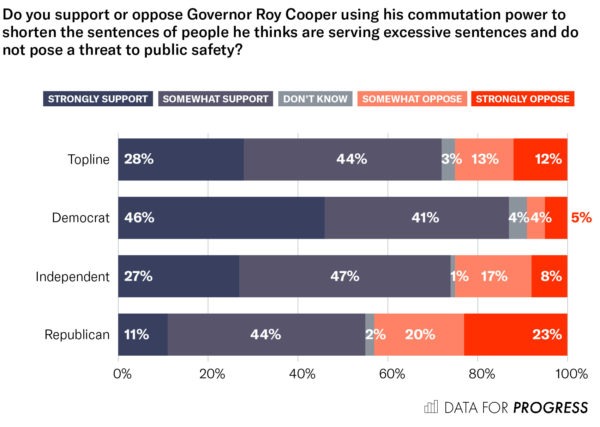
- 70 percent of voters (including 85 percent of Democrats, 75 percent of independents, and 50 percent of Republicans) support the governor using his commutation power as a tool to reduce the difference in sentences that Black and white individuals receive for the same offense.
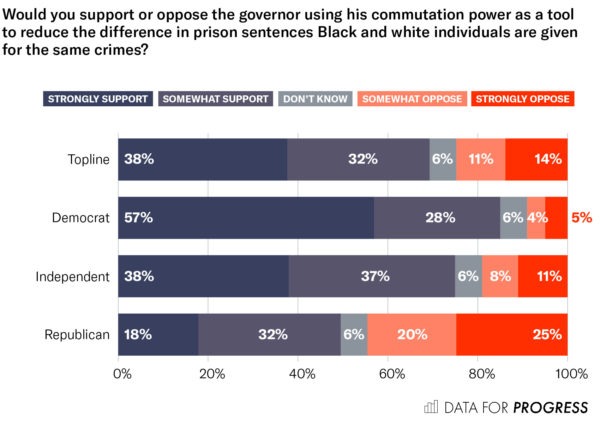
- 80 percent of voters (including 87 percent of Democrats, 82 percent of independents, and 72 percent of Republicans) support commuting the sentences for individuals who are serving longer sentences than is required by current law.
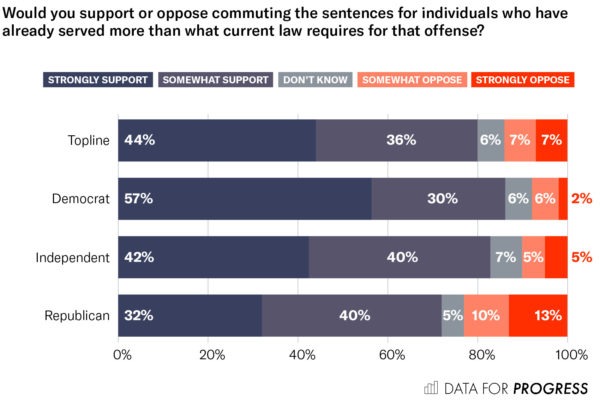
Voters want Cooper to use his clemency power to release individuals of advanced age and/or with chronic health conditions.
- 72 percent of voters (including 82 percent of Democrats, 74 percent of independents, and 62 percent of Republicans) support commuting the sentences of people over age 65 who do not pose a threat to public safety.
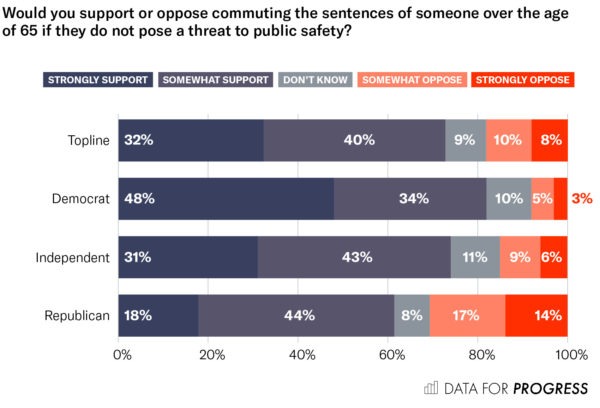
- When given information about the aging prison population and corresponding health concerns, 73 percent of voters (including 82 percent of Democrats, 77 percent of independents, and 61 percent of Republicans) said they supported commuting sentences for people aged 50 or older who do not pose a risk to public safety.
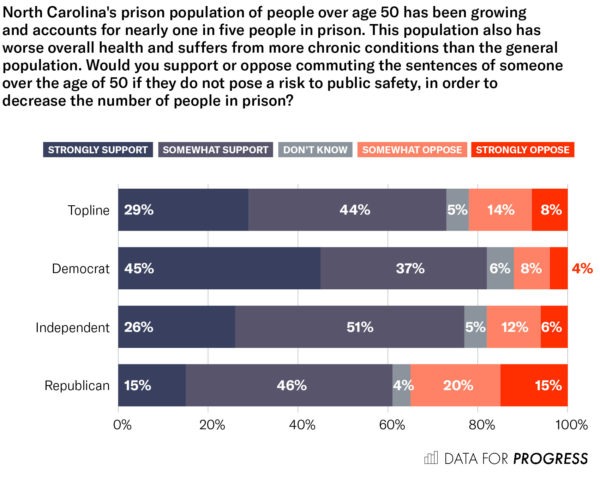
- 73 percent of voters (including 82 percent of Democrats, 68 percent of independents, and 66 percent of Republicans) support commuting the sentences of people with chronic illness who require long-term care and do not pose a threat to public safety.
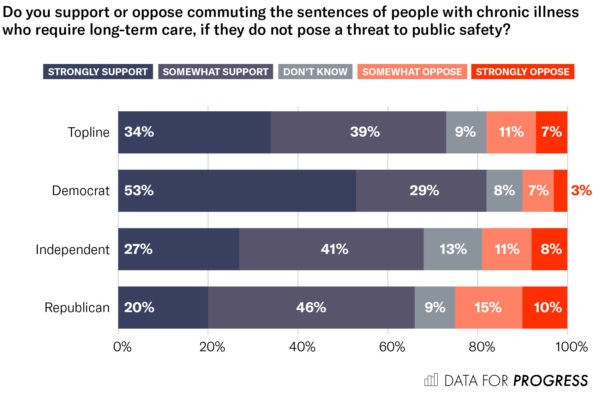
Voters want Cooper to grant clemency to individuals who were adolescents or early adults at the age of offense.
- 55 percent of voters (including 70 percent of Democrats, 61 percent of independents, and 35 percent of Republicans) support commuting the sentences of people who committed a crime when they were under the age of 25 and do not pose any threat to public safety.
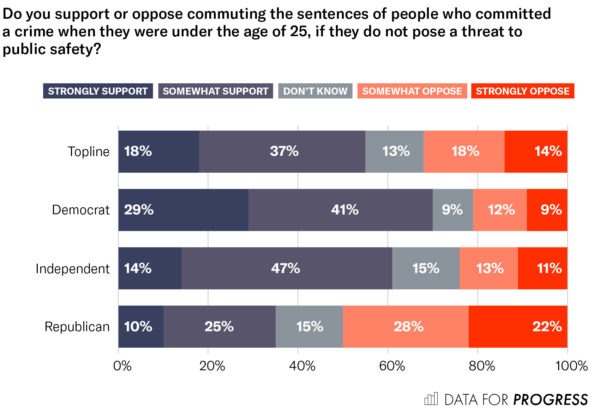
- 60 percent of voters (including 73 percent of Democrats, 58 percent of independents, and 46 percent of Republicans) support commuting the sentences of people who committed a crime when they were under the age of 20 and do not pose any threat to public safety.
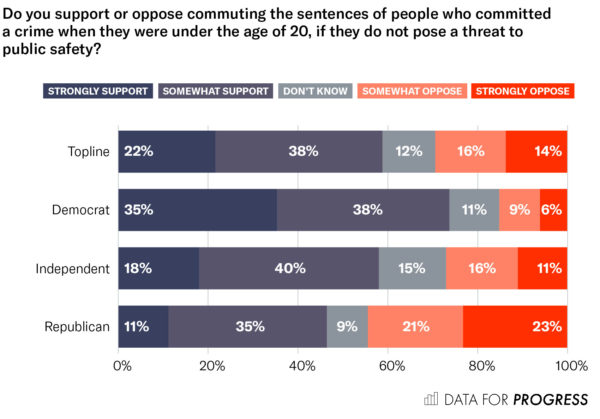
Voters want Cooper to commute sentences for individuals who have already served a considerable amount of time.
- 55 percent of voters (including 73 percent of Democrats, 52 percent of independents, and 38 percent of Republicans) support commuting the sentences of people who have already served 15 or more years in prison and do not pose a threat to public safety.
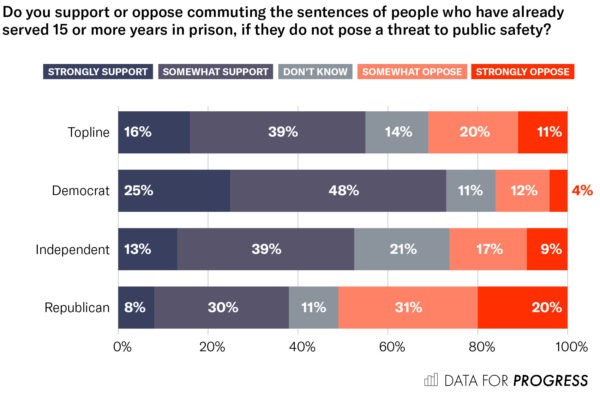
- 60 percent of voters (including 76 percent of Democrats, 57 percent of independents, and 46 percent of Republicans) support commuting the sentences of people who have already served 20 or more years in prison and do not pose a threat to public safety.
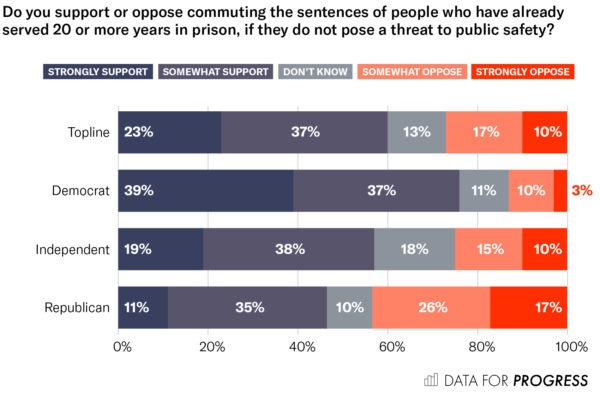
Voters want Cooper to grant clemency to categories of individuals sentenced for certain types or circumstances of offenses.
- 60 percent of voters (including 73 percent of Democrats, 58 percent of independents, and 49 percent of Republicans) support commuting sentences of a person convicted solely of drug offenses who does not pose a threat to public safety.
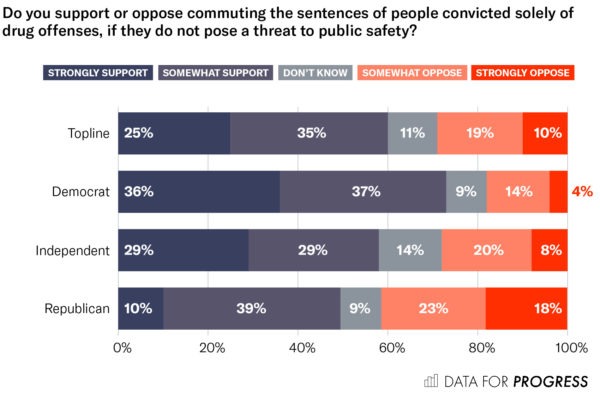
- 67 percent of voters (including 78 percent of Democrats, 63 percent of independents, and 49 percent of Republicans) support commuting sentences of individuals who did not cause death or bodily injury to anyone and who do not pose a threat to public safety.
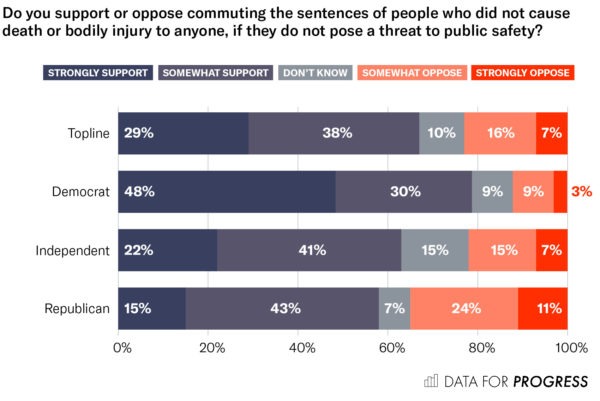
- 78 percent of voters (including 81 percent of Democrats, 81 percent of independents, and 72 percent of Republicans) support commuting sentences of women whose conviction is related to abuse they experienced and who do not pose a threat to public safety.
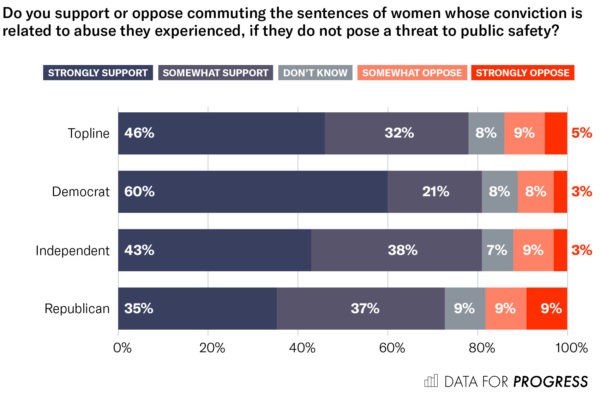
Polling Methodology
From May 8 to 12, 2021, Data for Progress conducted a survey of 621 likely voters in North Carolina using web panel respondents. The sample was weighted to be representative of likely voters by age, gender, education, race, and voting history. The survey was conducted in English. The margin of error is ±4 percentage points.

